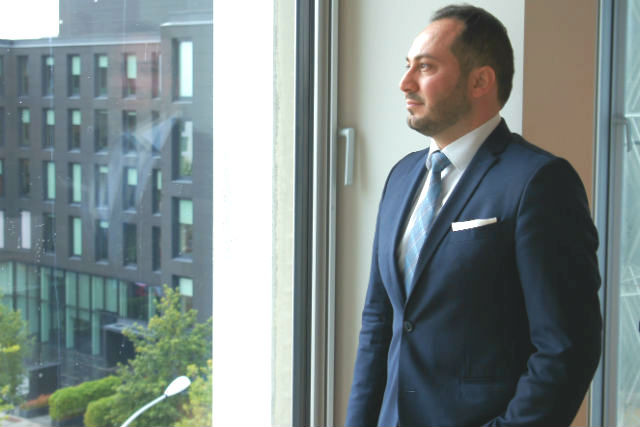It was on this premise that the founder of OQ Technology, Omar Qaise, devised his business to develop a satellite constellation to monitor activities for oil, gas, maritime, industry 4.0 and transport customers.
“I looked at satellites and asked, ‘why are they still so big and expensive? This space sector needs to be disrupted’,” Qaise tells Delano, adding: “Then I found nano-satellites, the size of shoe-boxes, were being used in education. I thought ‘why not make a business out of that?’”.
Originally from Iraq, Qaise received a scholarship to study telecommunications engineering at the University of Bremen in 2004. This he followed with an MBA at the University of Strathclyde in Glasgow. He worked for the Germany space centre and European Space Agency and spent four years with satellite operator SES in Luxembourg before founding the business in Wasserbillig in 2016.
The entrepreneur travelled around the Middle East, Europe and the US approaching potential customers to better understand their needs and build technology around that. He devised a business plan, providing technology on nano-satellites that communicates with sensors on earth.
The satellites would have a lifespan of up to three years and, once they become defunct, would drop out of orbit and burn-up in the atmosphere, reducing space junk. The company would also serve as a connectivity operator and data analytics provider to offer a service throughout the value chain.
Perfect timing
OQ’s timing could not have been better. In 2016, Luxembourg’s economy ministry launched the space resource initiative, aiming to foster a business environment in Luxembourg for newspace companies. OQ secured R&D funding for a feasibility study, which he said was rigorously screened by the European Space Agency and the Luxembourg economy ministry. The result--just weeks ago, OQ Technology announced a partnership with two other newspace actors in Luxembourg to deploy a €6m demonstration.
“I can’t really say the exact launch date but as soon as possible, I would hope 2019,” he says, adding: “We won’t be the first to do it, but we will be the ones that do it right.”
Qaise says the customer-first approach to the problem has helped attract a “long list” of people who have signed up for the demonstration. “We now have some MoUs with large oil and gas customers waiting for the service,” he adds.
Expansion plans
Fate also dealt Qaise a good hand when he bumped into Tomorrow Street CEO Warrick Cramer on a business trip in Dubai.
An accelerator linked to Vodafone Procurement, Luxembourg-based Tomorrow Street is supports for series A+ level suppliers in the telecommunications industry. The two recognised the synergies and, in the summer of 2018, Qaise moved his eight-strong team into the Tomorrow Street offices in Luxembourg-Kirchberg where they will remain for the next 12 months.
Qaise is now gathering private investment for the final demonstration push, after which he expects to deploy a full constellation of satellites operating globally. And then? “There are expansion plans but the headquarters will remain here,” Qaise says. “We envisage in two years to have more than 150 people in the team.”
